A guide to getting approval to work in 91�ȱ� buildings
This guidance has been produced to support you in identifying and understanding the requirements for the authorisation and control of that work. It is not about getting permission to do your normal job at your normal desk, it is about work that could negatively affect work by other people in the building.
The Permit to Work (PtW) system operates within 91�ȱ� premises in order that all work other than routine activities (such as office work) by in house staff is identified, assessed and coordinated through one single point of contact (The Permit Office). The work maybe work that you are doing yourself, or it may be work that you are arranging to be done by a contractor.
What work needs special permission
Here are a few examples:
- Building a stage for a choir that is not in a studio
- Filming a stunt that is not in a studio
- A live recording of an audience in a reception area
- Putting on a big staff event
- Bringing a generator on site for lighting a shoot
- Setting off fireworks or other pyrotechnics
- Using a building as a filming “location”
- Arranging for any building work
- Arranging for cables to be run through elevated floors and suspended ceilings.
What Can Go Wrong?
For Example
- Jobs interfering with each other
- A major accident or other injury
- Broadcast and Business Continuity issues
- Release of asbestos in certain buildings
- Impact on what other people are doing/conflict with other projects
- Delayed start and/or additional time needed to finish job
- Additional unplanned costs.
How the permit system works
There are a number of different forms that may be needed dependent on the type of work planned. Your Facilities Manager and the Permit Office will advise which are appropriate.
The Permit Office can also help you avoid having to fill in new forms each time if you plan to do the same work from time to time.
Training in the PTW system for you and your contractors may be available via your FM.
Many jobs will just need a simple ‘authorisation’ to work in a 91�ȱ� building, and you may be asked to complete a ‘Work Request’ form to get started. Even though work is authorised through the Permit to Work system a full ‘Permit to work’ should normally only be needed for higher risk activities such as:
- Hot work: welding and cutting operations, open flame work, pyrotechnics;
- Confined spaces – entry into, e.g. for cleaning and inspection;
- Electrical - e.g. lock off when working on electrical equipment and machinery, e.g. where casings are opened to access internal components;
- Working at heights - to specify precautions necessary to control the risk of falls.
- Excavations - to avoid contact with buried services (e.g. mechanical or electrical) and prevention of excavation collapse.
Getting Started
- Discuss your plan with your local Facilities Manager or Regional Facilities Manager who will advise whether specific authorisations or permits will be needed. They may refer you to your local Permit Office.
- Contact FM/RFM well in advance of the work to allow time for you to prepare your detailed plan and any documents that may be required for review before work start can be agreed. High risk work could take several weeks to arrange.
- High hazard and ‘Technical Permits to Work’ take longer! Allow several weeks.
- Take your risk assessment with you so that you can discuss the scope of work, location, hazards identified, etc. and the precautions you think are needed
- For more hazardous work you may be asked to provide a detailed method statement
- The FM/RFM will check whether your plan would be affected by other activities planned for the same time and place.
- If contractors or other 3rd parties are involved in the work you will be responsible for checking their competence, and in some cases providing documentary evidence before authorisation to start work can be given
- Additionally you can contact 91�ȱ� Safety for specific advice.
Division Specific Issues
- No division specific issues.
Useful documents
Recommended links
Premises and sets topics
-

Sets & Premises safety guide
This Safety Guide collates those of our Safety Guidelines relating to construction activities (on sets or other structures, including under 'CDM') and to the occupation / use of building premises (studios or locations). -
 This site is for 91�ȱ� Employees or potential future employees only. If you are not a 91�ȱ� employee or looking for further information regarding 91�ȱ� Access Services then please click on another page from the menu above, where you can find out more about Remploy.
This site is for 91�ȱ� Employees or potential future employees only. If you are not a 91�ȱ� employee or looking for further information regarding 91�ȱ� Access Services then please click on another page from the menu above, where you can find out more about Remploy. -
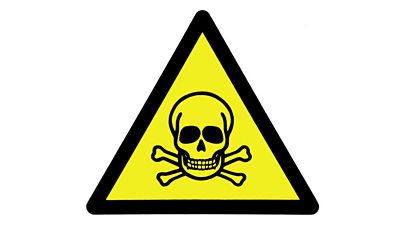
Asbestos Management on 91�ȱ� premises
This is a summary of the way that asbestos is managed in 91�ȱ� Buildings. It supplements the information about managing asbestos on productions. -
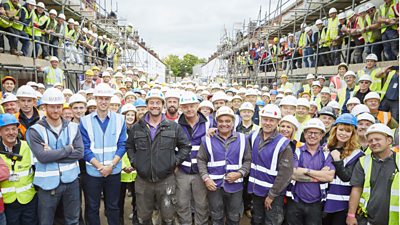
CDM Overview
Legislation to ensure the safe design and construction of structures was updated in April 2015, namely the Construction (Design and Management) Regulations 2015 (CDM 2015) -

CDM 2015 - The 91�ȱ� Approach
Guidance on the practical application of the Construction (Design and Management) Regulations 2015 across the 91�ȱ� -
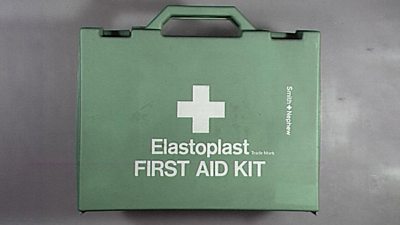
First Aid in 91�ȱ� Premises
This page describes how first aid is arranged in 91�ȱ� premises. It supplements the guidance to first aid on productions. It is aimed at people who need to decide what provision to make for first aid on 91�ȱ� premises. It also provides the arrangements and numbers for contacting ambulances and the National Central Control Room (NCCR). -
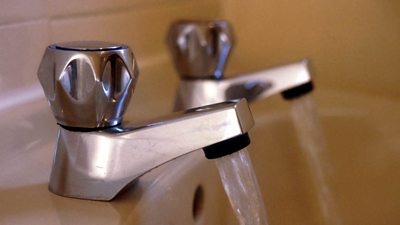
Legionella in Premises: Control of
This guidance provides an overview of how water systems are managed in premises to minimise the risks from the Legionella bacteria. -
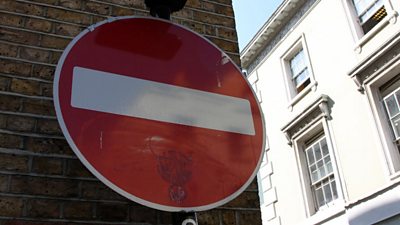
Permit to Work in 91�ȱ� Buildings (Restricted Work)
Some work in 91�ȱ� buildings is restricted and you have to get permission, called a Permit To Work (PtW) to do it. -
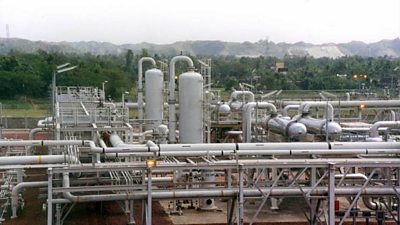
Pressure Systems
A guide to pressure systems in buildings. Pressure Systems include all plant/systems that contain a ‘relevant fluid’, defined as steam or gas under pressure and liquids under pressure which become gases upon release to the atmosphere, at a pressure greater than 0.5 bar (about 7psi) above atmospheric (except for steam). Around the 91�ȱ� there are heating, fuel transfer, compressed gas and hydraulic systems used in program production, studios (e.g. Camera Peds), office and maintenance facilities. -
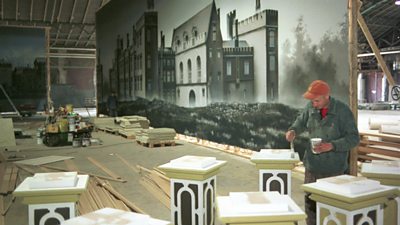
Sets: Safety of
This Safety Guideline is concerned with the construction and use of production sets and associated scenery used in studios and on locations.
More from SSR
-
Your platform to record accidents, risk assessments, assurance monitoring and inspections
-
Safety Equipment Stores
Just one number to call: 020 3614 5155 -
91�ȱ� Safety Guidelines
An A-Z of 91�ȱ�'s Health and Safety Guidelines -
Safety Advice Line: 0370 411 0464 Email: safety@bbc.co.uk
Events guidance - key links:
- Exhibitions
- General Guidance
- Indoor Location Recce Checklist
- Outdoor Location Recce Checklist
- Major Incidents & Emergency Planning
- Marketing and Promotional
- Noise Exposure
- Planning and Management
- Responsibilities
- Responsibilities Form
- Laser Lighting Effects
- Strobe Lighting
- Temporary Stages and Rostra
Health topics - key links:
- (91�ȱ� network only)
- Contributors Fitness to Participate
- Display Screen Equipment (DSE)
- (91�ȱ� network only)
- First Aid and Welfare on Location
- International Travel - Risks & Health
- Manual Handling
- Mental Health: 91�ȱ�page
- (91�ȱ� network only)
- Personal Health and Wellbeing
- Pregnancy
- Psychological Trauma Support & Trauma Risk Management (TRiM)
- Tiredness and Fatigue
- Travel Health Contacts
91�ȱ� High Risk - key links:
- CBRN and Industrial Spills
- Covert Filming
- Crisis Management and Security Support
- Demonstrations, Protests and Crowds
- Disaster Coverage
- Door Stepping
- (91�ȱ� network only)
- (91�ȱ� network only)
- Public Order
- Safety Equipment Stores
91�ȱ� Journalism - key links:
91�ȱ� Productions - key links:
- Aerial Filming and Airfields
- Animals: Displaying and handling for performance
- Boats: Working on
- Children and Young People
- Driving
- Electrical Equipment and Systems
- First Aid and Welfare on Location
- Food Safety (Cooking and Catering)
- Remote Location Working
- Roads and Streets: Working by
- Security of Productions on Location
- Stunts
- Tiredness and Fatigue
- Unmanned Aerial Systems (UAS aka Drones)
- Vehicles: Recording in, from and around
- Working at Height: Mobile Elevating Work Platforms
- Working at Height: Tower Scaffolds
91�ȱ� Radio - key links:
- (91�ȱ� Network only)
91�ȱ� Security - key links:
91�ȱ� Sport - key links:
About this site
This site describes what the 91�ȱ� does in relation to managing its health, safety and security risks and is intended for those who work directly for the 91�ȱ�.
It is not intended to provide instruction or guidance on how third parties should manage their risks. The 91�ȱ� cannot be held liable for how this information is interpreted or used by third parties, nor provide any assurance that adopting it would provide any measure of legal compliance. More information
Some links on this site are only accessible when connected to the 91�ȱ� network
